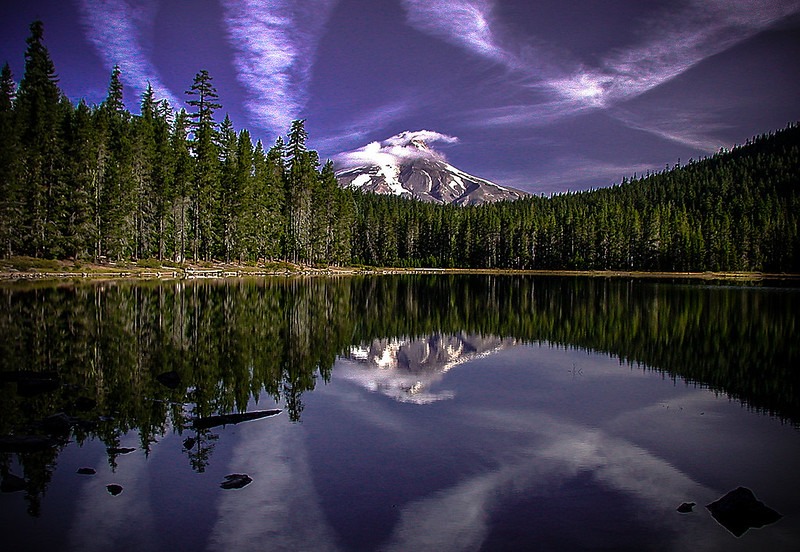
Image: U.S. Forest Service – Pacific Northwest Region
For Immediate Release, September 7, 2021
Contact:
Jonah Sandford, Northwest Environmental Defense Center,
(971) 219-4677, jonah@nedc.org
Lauren Goldberg, Columbia Riverkeeper, (541) 965-0985, lauren@columbiariverkeeper.org
Ryan Shannon, Center for Biological Diversity, (971) 717-6407, rshannon@biologicaldiversity.org
Oregon Denies Key Authorization for Controversial Dam in Mt. Hood National Forest
State Finds Proposed Operations Would Violate Temperature Standards in Critical Bull Trout Habitat
PORTLAND, Ore.— The Oregon Department of Environmental Quality has denied a water-quality certification for continued operations of Middle Fork Irrigation District’s water delivery system, including Clear Branch Dam, in Oregon’s Hood River basin. The decision came after conservation groups raised serious concerns about the project’s failure to comply with water-quality standards and its impact on threatened bull trout.
On Sept. 2, the department ultimately agreed that the district’s proposed operations would not comply with temperature standards that are essential to protecting the basin’s remaining bull trout.
Because much of the Middle Fork Irrigation District’s operations take place on U.S. Forest Service lands, the district is seeking a new “special use permit” from the agency. Under the Clean Water Act, a necessary component of this re-licensing process is certification from the Department of Environmental Quality that operations will comply with all applicable state water-quality standards.
“This decision is a great victory for people that value Oregon’s iconic salmon and bull trout,” said Jonah Sandford, a staff attorney at the Northwest Environmental Defense Center. “If this population of bull trout is going to survive, it is critical that the Department of Environmental Quality use this re-licensing opportunity to ensure that the irrigation district’s operations comply with federal and state law. We applaud the department’s decision and hope that it encourages a deeper discussion about how to protect and restore the basin’s salmon and bull trout.”
In spring 2021 the department proposed to issue a water-quality certification to the district. This prompted immediate concern from several conservation groups, including the Northwest Environmental Defense Center, Columbia Riverkeeper, the Center for Biological Diversity, Native Fish Society, Northwest Environmental Advocates and BARK.
The groups argued that the certification was unwarranted because the district’s proposed operations would not ensure compliance with important Hood River Basin protocols, including temperature standards specifically developed to protect bull trout in one of their few remaining Oregon strongholds.
“Bull trout need cold, clean water to survive,” said Ryan Shannon, a staff attorney at the Center. “Now this population will have a fighting chance.”
The Middle Fork Hood River sub-basin provides the only remaining bull trout spawning and rearing habitat in the Hood River Basin. The basin’s bull trout likely functioned, historically, as a single population, but when Clear Branch Dam was constructed in 1969 without fish passage, the Middle Fork’s bull trout population was fragmented.
The resulting Laurance Lake reservoir isolated bull trout above the dam, and discharges of relatively warmer waters from Laurance Lake increased temperatures below the dam. As a result the bull trout population above the dam, and the Middle Fork population as a whole, are in severe danger of extinction.
The Northwest Environmental Defense Center is an independent nonprofit organization working to protect the environment and natural resources of the Pacific Northwest.
The Center for Biological Diversity is a national, nonprofit conservation organization with more than 1.7 million members and online activists dedicated to the protection of endangered species and wild places.
Columbia Riverkeeper’s mission is to restore and protect the water quality of the Columbia River and all life connected to it, from the headwaters to the Pacific Ocean. Columbia Riverkeeper is a nonprofit organization with over 16,000 members who live, work, and recreate throughout the Columbia River Basin. www.columbiariverkeeper.org

